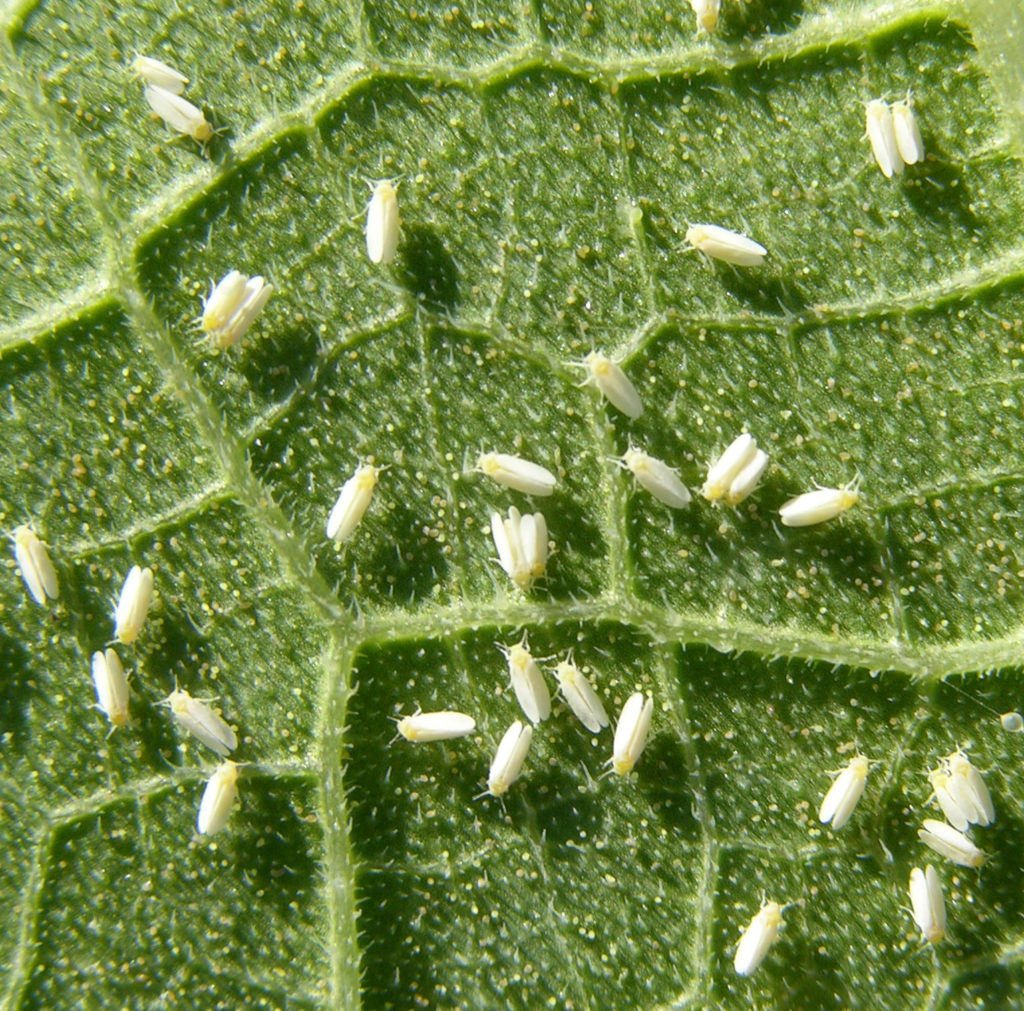By Clint Thompson
Alabama cucurbit growers are already seeing increased whitefly populations in their fall crops.

Whitefly-transmitted viruses are not far behind, says Ed Sikora, professor and Extension plant pathologist in the department of entomology and plant pathology at Auburn University.
“My guess is with the number of whiteflies and with these crops we’ll start seeing symptoms with some of these various viruses we see whitefly transmitted,” Sikora said. “We’re seeing mosaic viruses as well, which are aphid transmitted. Sometimes it can be very difficult to control these insects and for the virus disease by controlling the insects with insecticides. It usually doesn’t work too well. Growers need to go to more cultural practices.
“Insecticides to control a whitefly problem is a challenge.”
Whiteflies migrate from winter vegetables to spring vegetables to agronomic crops, like cotton, to fall vegetables and back to winter vegetables.
When whiteflies feed on plants, they can cause irregular ripening of the fruit or secrete honeydew, offering a path for the growth of sooty mold or saprophytic fungi, which eat decaying organic material. However, the viruses that whiteflies transmit, like cucurbit leaf crumple virus and tomato yellow leaf curl virus, can devastate a crop. These viruses cause severe symptoms on infected plants: yellowing of leaves, leaf crumpling, plant stunting and overall plant decline.
Vegetables like squash, zucchini, cucumber and snap beans are susceptible to viruses transmitted by whiteflies.
If growers can’t control a virus disease with a fungicide, what options are available for producers to protect their crops? Sikora believes weed control and proper sanitation with a crop at the end of the season will reduce population numbers.
“A lot of these viruses survive in weeds around the field. Weed control around the field before planting and in the offseason can reduce the amount of virus inoculum that will overwinter in an area,” Sikora said.
A colder winter will also aid in reducing whiteflies.
“We’ve had a couple of mild winters, I think two in a row. That has not helped us at all with knocking back the insect population,” Sikora said.










